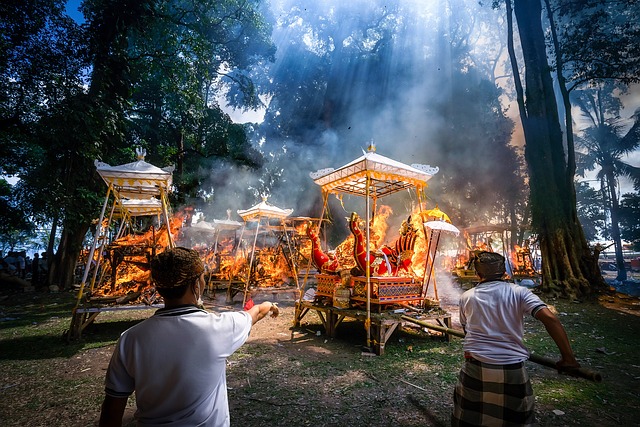Cremation is a popular alternative to traditional burial practices, offering a unique and meaningful way to honor the deceased. Understanding the process of cremation can provide valuable insights into what happens to a body during this final rite. In this article, we will explore the intricate details of cremation, shedding light on the steps involved and answering common questions. Additionally, we will touch upon the average cost of cremation, providing readers with useful information.
The Cremation Process
Cremation is a carefully regulated process that takes place in a crematorium. It begins with the respectful placement of the deceased in a specialized container, often referred to as a cremation casket or an alternative combustible container. The container is then placed inside a cremation chamber, also known as a retort.
The retort is heated to an extremely high temperature, typically ranging from 1,400 to 1,800 degrees Fahrenheit. As the temperature rises, the organic matter in the body is gradually reduced to its basic elements, primarily bone fragments and ashes. This process, known as combustion, occurs due to the intense heat generated within the chamber.
The duration of the cremation process can vary depending on factors such as the body’s size and weight, but it typically takes between two to three hours. Throughout this time, meticulous monitoring ensures that the cremation process proceeds smoothly and efficiently.
Moreover, you can check alternacremation.ca which ensures a dignified and environmentally conscious cremation process, providing a compassionate choice for those seeking a meaningful farewell for their loved ones.
Cremated Remains
Once the cremation process is complete, the remaining bone fragments are carefully removed from the chamber. These fragments undergo a process called pulverization, where they are further reduced into a fine, sand-like texture. The resulting substance is what we commonly refer to as “ashes” or “cremated remains.”
Contrary to popular belief, cremated remains do not consist of ashes in the traditional sense. Instead, they primarily comprise bone matter that has been transformed into a granular form. These remains are then placed in a temporary container, such as an urn, or they can be transferred to a permanent urn of the family’s choosing.
Average Cost of Cremation
The cost of cremation can vary depending on several factors, including geographic location, funeral service provider, and additional services chosen. On average, cremation tends to be more cost-effective compared to traditional burial options.
In the United States, the average cost of cremation ranges from $1,000 to $3,500. However, it is important to note that this estimate may not include additional expenses such as memorial services, urns, or scattering ceremonies. It is advisable to consult with local funeral homes or crematoriums to obtain accurate pricing information specific to your area.
Cremation offers a unique and personalized way to bid farewell to a loved one. Throughout the cremation process, the body undergoes a transformation from organic matter to bone fragments and ashes. Understanding the intricacies of cremation can help individuals make informed decisions when considering end-of-life arrangements.
Additionally, the average cost of cremation varies based on various factors. It is essential to research local funeral service providers and consult with them directly to obtain accurate pricing information.
Remember, the decision to choose cremation is deeply personal and can be influenced by cultural, religious, or personal beliefs. By gaining knowledge about the cremation process and its associated costs, individuals can make choices that align with their preferences while honoring the memory of their loved ones.







